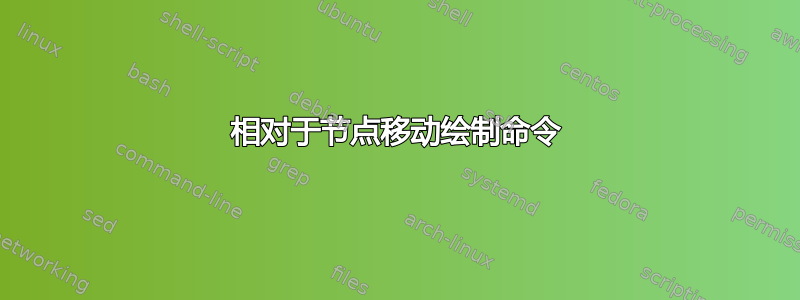
我正在尝试使用 TikZ 中的节点制作框图。我需要画一个扬声器来表示信号是音频信号。
这是 tikzpicture 的代码:
\tikzstyle{block} = [draw, minimum width=1.2cm, minimum height=0.8cm, align=center]
\begin{tikzpicture}[every node/.style={scale=0.5}]
\node[block, text width=1.4cm](am_demod) at (0, 0){Envelope detector};
% Rama tono
\node[block, above right=0.4cm and 0.5cm of am_demod](lpf_tono) {$LPF$};
\node[block, text width=1.4cm, right=0.4cm of lpf_tono](cf_tono) {Corrector de fase};
% Rama FM (ref)
\node[block, right=0.5cm of am_demod](bpf_fm) {$BPF$};
\node[block, right=0.4cm of bpf_fm](lim) {Limitador};
\node[block, right=0.4cm of lim](bpf_fm2) {$BPF$};
\node[block, right=0.4cm of bpf_fm2](dt) {$\frac{d}{dt}$};
\node[block, text width=1.4cm, right=0.4cm of dt](env) {Envelope detector};
\node[block, text width=1.4cm, right=0.4cm of env](cf_ref) {Corrector de fase};
% Rama morse
\node[block, below right=0.8cm and 0.5cm of am_demod](bpf_morse) {$BPF$};
\node[draw,circle, minimum size=0.6cm, right=0.7cm of bpf_morse](mul) {};
\node[block, right=0.7cm of mul](lpf_morse) {$LPF$};
\node[below=0.4cm of mul, align=center](cos) {$2 \cdot cos(2\pi f_{morse}t)$};
\draw[scale=0.25, shift=($(mul.north) + (0mm, 0.8mm)$)] (11mm,2mm) -- +(0mm,-4mm)
(13mm,4mm) -- +(0mm,-8mm)
(15mm,6mm) -- +(0mm,-12mm)
(0mm,0mm) -- +(0mm,-3mm) -- +(4mm,-3mm) -- +(9mm,-7mm) -- +(9mm,7mm) -- +(4mm,3mm) -- +(0mm,3mm) -- +(0mm,0mm);
\end{tikzpicture}
我正在使用以下 tikz 库:
\usetikzlibrary{math, calc, arrows, angles, quotes, patterns, positioning}
我的问题是,当我尝试通过 node.north 坐标加上偏移量来移动绘图时,我不知道在最后一个绘图命令中使用正确的语法。
提前致谢
答案1
无法随意移动某些路径。但是,您可以在移动时考虑此节点的坐标。例如,如果节点位于右侧(0,0),则可以移动绘制扬声器的路径,例如\draw[scale=0.25, xshift=-40mm] ...
您的图像可以以更一致、更简洁的方式绘制。通过使用chain库,MWE 可以:
\documentclass[margin=3.141592]{standalone}
\usepackage{tikz}
\usetikzlibrary{chains,
positioning}
\begin{document}
\begin{tikzpicture}[
node distance = 4mm and 5mm,
start chain = going right,
every node/.style = {scale=0.5},
block/.style = {draw, minimum width=13mm, minimum height=11mm,
align=center},
C/.style = {circle, draw, minimum size =9mm}
]
\begin{scope}[nodes={block, on chain}]
\node[anchor=west] (am_demod) {Envelope\\ detector}; % <---
\node (bpf_fm2) {$BPF$};
\node (lim) {Limitador};
\node (bpf_fm) {$BPF$};
\node (dt) {$\frac{d}{dt}$};
\node (env) {Envelope\\ detector};
\node (cf_ref) {Corrector\\ de fase};
\end{scope}
% Rama tono
\node[block, above=of bpf_fm2] (lpf_tono) {$LPF$};
\node[block, above=of lim] (cf_tono) {Corrector\\ de fase};
% Rama morse
\node[block, below=of bpf_fm2] (bpf_morse) {$BPF$};
\node[C, below=of lim] (mul) {};
\node[block, below=of bpf_fm] (lpf_morse) {$LPF$};
\node[below=of mul] (cos) {$2 {\cdot} cos(2\pi f_{\mathrm{morse}}t)$};
\draw[scale=0.25, xshift=-40mm] % <---
(11mm,2mm) -- +(0mm,-4mm)
(13mm,4mm) -- +(0mm,-8mm)
(15mm,6mm) -- +(0mm,-12mm)
(0mm,0mm) -- +(0mm,-3mm) -- +(4mm,-3mm) -- +(9mm,-7mm)
-- +(9mm, 7mm) -- +(4mm, 3mm) -- +(0mm,3mm)
-- +(0mm,0mm);
\end{tikzpicture}
\end{document}
在我看来,你的块方案并不完整。缺少连接块的箭头。这是如何实现的以及它们是否有标签尚不清楚。我只能建议使用quotes箭头标签库。
编辑:您可以将扬声器绘制为pic图像并将其定位为节点主分支的输入。
join还让我们预测,节点的主分支由没有标签的箭头连接。然后,考虑宏(在 中定义chains)绘制的箭头并用于扬声器的MWE\pic是:
\documentclass[margin=3.141592]{standalone}
\usepackage{tikz}
\usetikzlibrary{arrows.meta,
chains,
positioning}
\begin{document}
\begin{tikzpicture}[
node distance = 4mm and 5mm,
start chain = A going right,
every node/.style = {scale=0.5},
arr/.style = {draw=gray, semithick, -{Straight Barb[scale=0.8]}},
block/.style = {draw, minimum width=13mm, minimum height=11mm,
align=center},
C/.style = {circle, draw, minimum size=9mm},
pics/speaker/.style = {code={%
\draw (0,0) coordinate[right=0.45] (-LS)
-- +(0,-0.15) -- +(0.2,-0.15) -- +(0.45,-0.35)
-- +(0.45,0.35) -- +(0.2, 0.15) -- +(0,0.15)
-- cycle
(0.6,0.1) to[bend left] +(0,-0.2)
(0.7,0.2) to[bend left] +(0,-0.4)
(0.8,0.3) to[bend left] +(0,-0.6);
}}
]
% loudspeaker
\pic (in) {speaker};
%%%% positioning of blocks
\begin{scope}[nodes={block, on chain, join=by arr}]
\node[right=2mm of in-LS] {Envelope\\ detector}; % A-1
\node {$BPF$}; % A-2
\node {Limitador};
\node {$BPF$};
\node {$\frac{d}{dt}$};
\node {Envelope\\ detector};
\node {Corrector\\ de fase}; % A-7
\end{scope}
% Rama tono
\node[block, above=of A-2] (A-2a) {$LPF$};
\node[block, above=of A-3] (A-3a) {Corrector\\ de fase};
% Rama morse
\node[block, below=of A-2] (A-2b) {$BPF$};
\node[C, at={(A-3 |- A-2b)}] (A-3b) {};
\node[block, below=of A-4] (A-4b) {$LPF$};
\node[below=of A-3b] (cos) {$2\cdot\cos(2\pi f_{\mathrm{morse}}t)$};
\end{tikzpicture}
\end{document}




